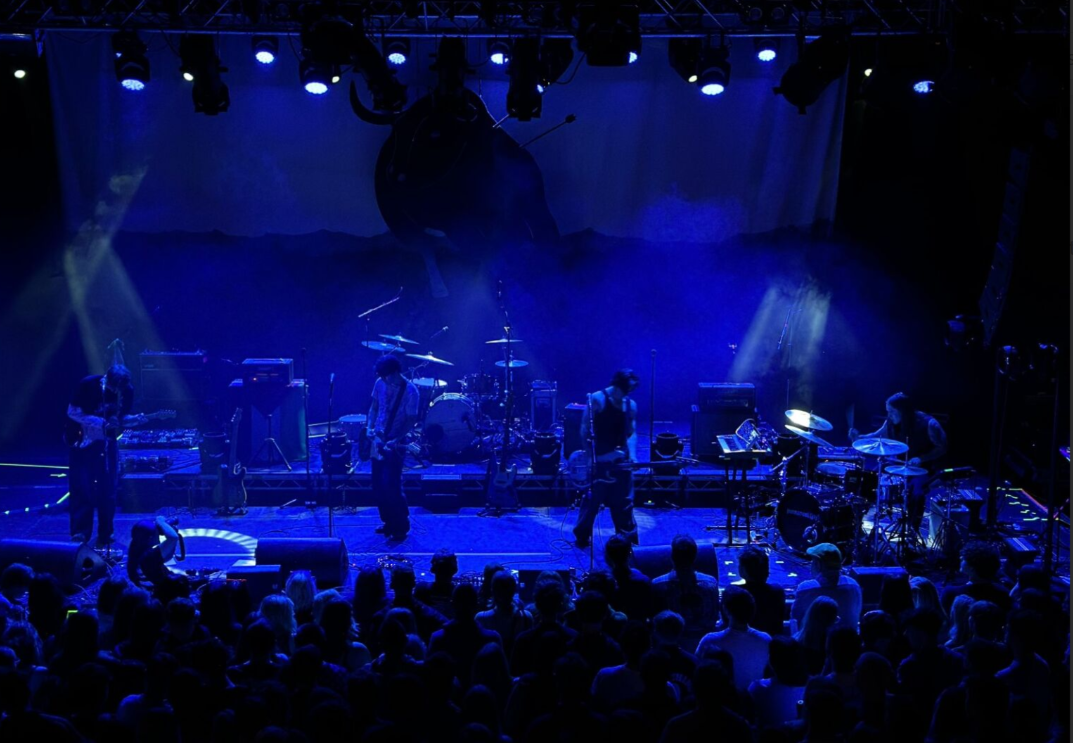In honour of the 25th anniversary of the original Jurassic Park,  two Quench contributors reveal what the legendary franchise means to them. 
There are two kinds of people. Those who grow out of their dinosaur stage, and those who don’t. I’m one of the latter. And it’s Jurassic Park’ fault.
My earliest memory of the franchise was the release of Jurassic Park III in 2001, which I have a distinct recollection of seeing merchandise for. Among the visions of half-broken Star Wars figures, ┬áI see dinosaur hand puppets, cereal box freebies and obviously, models.┬á Now, Jurassic Park doesn’t solely exist to sell toys (honest), but here I am, seventeen years later, writing about said toys.
Of course, I do also have to talk about the films. There’s the good one, the one where a dog gets eaten and the one with the talking raptor dream (I’ll get to Jurassic World later). I’ve watched the first film several times over, each time noticing different details which make me realise how brilliant it actually is. There’s the awe carried by John Williams’ soundtrack, Goldblum, the tension when the T.Rex breaks through the fence, Goldblum, the perfect merging of practical and computer effects and a great ensemble cast, including Jeff Goldblum. ┬áThe sequels pale in comparison, but their best elements are often lifted from the original.
I didn’t go out of my way to watch Jurassic World. I eventually did, and immediately forgot I had. If Jurassic Park was Haagen Dazs, Jurassic World was vanilla ice cream, Tesco’s own brand. It was bland, not particularly unpleasant, but no one is fond of it. Needless to say I wasn’t expecting much from Fallen Kingdom. Which begs the question, why did I enjoy it so much?
My main problem with Jurassic Park’s sequels, and sequels in general, is that they try too hard to be like the original. So, much like how, upon further reflection, I enjoyed The Last Jedi, Fallen Kingdom was a welcome break from form. For once, the franchise was self-aware, it switched from comedy to horror on a dime. The characters were over-the-top caricatures, but the film knew they were over-the-top caricatures. Fallen Kingdom is by no means a critically good film, but it is certainly a fun one, and most importantly, it’s a sign that Ian Malcolm’s message is finally getting through:
“You stood on the shoulders of geniuses to accomplish something as fast as you could and before you even knew what you had you patented it and packaged it and slapped it on a plastic lunchbox, and now you’re selling it, you want to sell it.”
(Also remember to read Michael Crichton’s original book, it’s great)
By Anthony Stonestreet
Jurassic Park turns twenty-five this year, and I have been a fan since a very young age. How did become a fan of Jurassic Park? Well, it’s probably because as a kid I was a big fan of dinosaurs in general. For whatever reason, from the ages of around three to eight, I was fascinated by these prehistoric beasts. I would draw them, constantly ask my parents for new books about them and in general tried to learn as much about them as I could. I could barely wrap my head around basic division, but I could name tons of these creatures, what time period they came from and even what their names meant.
I think what drew me as well as many other children to dinosaurs is that they had a certain mythical quality to them. No one has ever seen these animals in real life, only in cartoons or brought to the cinema through impressive but still obviously fake stop motion or puppets. This makes them almost akin to creatures of legend like dragons or yetis, larger than life beings that you could hardly imagine actually existing. This is where Jurassic Park comes in. In the early 90’s, CGI was still in its infancy, often looking awkward and cheap when applied to movies and TV series. Under the guidance of Stephen Spielberg, however, CGI combined advancements in animatronics and $63 million in the budget were able to bring the impossible to life. This is what made Jurassic Park feel so special for me and many other young kids. For the first time in cinema history, dinosaurs looked and felt real.
When I watched Jurassic Park for the first time, that initial scene with Sam Neill looking up to the head of a Brachiosaurus was breathtaking. A regular man standing next to a fifty-foot-tall reptile as if they were really in the same place together had never been seen before on the big screen. But the dinosaurs weren’t just spectacular, they were terrifying. The T-Rex and the raptors felt like true monsters that nothing in the modern animal kingdom could compare to. The way they growled, hunted and fought was the same way real predators would, only they were much bigger and more violent, which just made it all the more fun.
That’s what I think feel made Jurassic Park so special; it took the spectacular and made it reality. It’s a very significant film as well, in how it led to other creatures being brought to life. The special effects used on these dinosaurs would in themselves evolve to create the demons, aliens and superheroes that make up much of today’s blockbuster cinema. Effects like these have been sixty-five million years in the making, and they were finally brought to use through the gates of Jurassic Park.
By Alex Briggs


